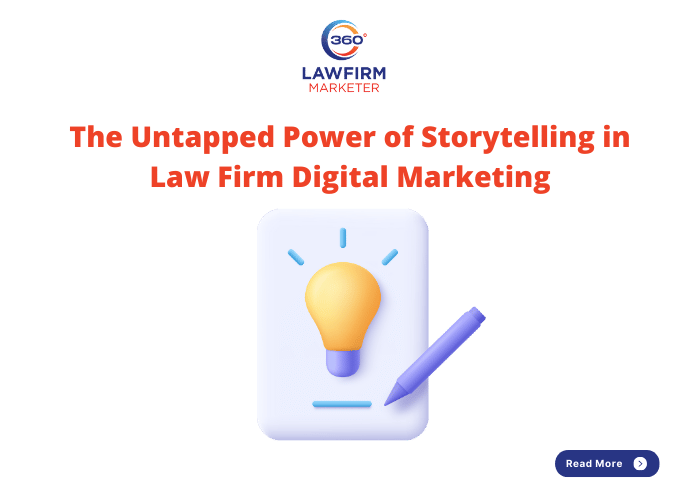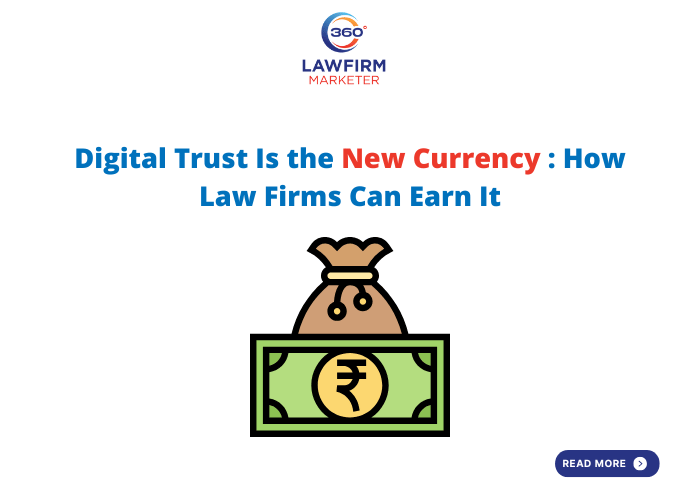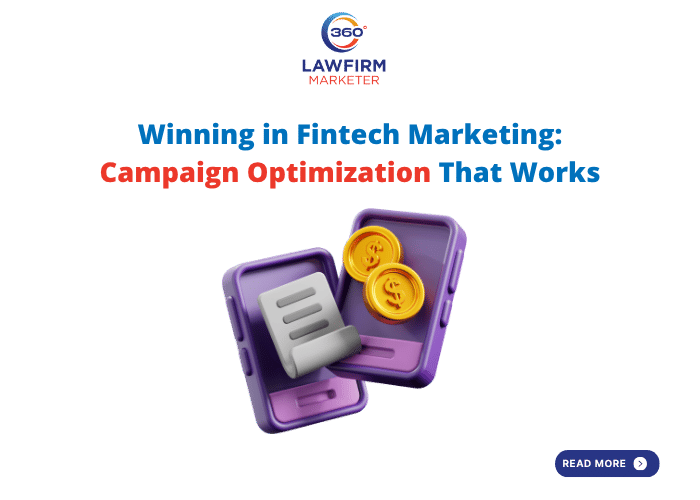The Untapped Power of Storytelling in Law Firm Digital Marketing

In today’s digital age, law firms face a unique challenge. Potential clients are overwhelmed with information, bombarded by generic ads, and inundated with dry legal jargon across websites and social channels. To stand out, law firms must go beyond listing their services and credentials. The secret weapon? Storytelling.
Storytelling isn’t just for novelists or filmmakers. It’s a powerful marketing strategy that allows law firms to connect with their audience on an emotional level, transforming a website or social feed from a static resource into a compelling, trustworthy experience. But what makes storytelling such a game-changer for law firm marketing, and how can it be integrated seamlessly into a digital strategy? Let’s explore.
Why Storytelling Resonates in the Legal Industry
Legal services are inherently personal. Behind every case lies a person’s life story a struggle, a fight for justice, a quest for resolution. Yet, most law firm websites fail to reflect this human element. Instead, they rely on overused phrases like “experienced professionals” or “dedicated to your success,” which quickly blend into a sea of similar competitors.
A well-crafted story does what credentials alone cannot: it builds trust. When potential clients read about a firm’s journey, the challenges it has overcome, or client success stories that highlight real-life outcomes, they begin to see the firm as approachable and credible. This emotional connection becomes a powerful differentiator.
Consider the difference between:
- “We provide expert family law services”
versus - “When Sarah faced a difficult divorce, our team guided her through the complex legal process, helping her secure a fair settlement while preserving her dignity.”
The second narrative draws the reader in, making the firm relatable and trustworthy.
Incorporating Storytelling into Your Content Strategy
Many law firms struggle to implement storytelling effectively because they don’t know where to start. The key is to frame your content in a way that highlights real human experiences, emphasizes challenges, and presents your firm as the solution.
Start by creating case study-style content that focuses not on legal jargon, but on the client’s journey. For example:
- How did a small business owner secure critical intellectual property rights?
- What steps were involved in resolving a complex family dispute?
- How did your firm assist a startup through regulatory hurdles to get funding?
When done well, these narratives don’t just showcase success; they demonstrate empathy and a deep understanding of the client’s problems.
Interestingly, when combined with marketing automation tools, storytelling becomes even more powerful. Automated email sequences can deliver these stories over time, keeping potential clients engaged and nurturing leads without manual follow-up. Imagine a prospect receiving a series of emails, each telling a different story about past clients and the firm’s problem-solving approach, gently guiding them toward booking a consultation. This approach not only drives engagement but also saves time and increases conversion rates.
Storytelling Across Social Channels
Incorporating storytelling into your social media marketing strategy takes your online presence to the next level. Social platforms like LinkedIn, Facebook, and Instagram are built for engagement and interaction, making them perfect venues to share bite-sized stories that resonate.
Instead of posting dry case summaries or promotional content, think about sharing short, authentic stories:
- A photo of your team volunteering with a local community organization, along with a story of why you do it.
- A video snippet of a partner discussing a particularly challenging case and what motivated them to work in that area of law.
- A carousel post showing a timeline of a significant case and its outcome.
Such content humanizes your brand and encourages followers to engage, comment, or share.
Moreover, stories work exceptionally well in paid social media campaigns. Rather than simply promoting services, use storytelling in your ad copy. An ad reading “John thought he would lose his family business in a complicated legal dispute until we stepped in” performs much better than “We offer business dispute resolution services.” The narrative approach makes the ad memorable and drives better click-through rates.
The Role of Paid Advertising in Storytelling
When combined with pay per click management, storytelling takes paid advertising from generic to engaging. Instead of sending visitors to a cold landing page with a list of services, direct them to a page featuring real-life stories and testimonials that illustrate your firm’s impact.
For instance, instead of an ad that says “Family Law Services – Contact Us Now,” run a PPC ad with a headline like “How We Helped a Single Mother Secure Custody Against All Odds.” The landing page continues the story, detailing the challenge, the firm’s approach, and the successful resolution.
This strategy not only improves conversion rates by building trust upfront but also reduces bounce rates. Visitors who arrive with a story in mind are more likely to explore your site and eventually convert into leads.
Avoiding the Pitfalls of Storytelling
While storytelling is powerful, it must be done authentically. Potential clients are savvy; they can sense when stories are fabricated or overly polished. The most effective stories are real, concise, and focused on the human element of the case, without disclosing confidential details.
Additionally, it’s crucial to maintain a professional tone. The goal is not to turn your firm into a dramatic soap opera but to demonstrate empathy, expertise, and dedication through well-structured narratives.
A good structure follows a simple arc:
- Problem – The challenge the client faced.
- Action – How your firm approached the case.
- Resolution – The outcome and how the client benefited.
This ensures clarity and purpose in every story you share.
Measuring the Impact of Storytelling
The success of your storytelling strategy should be measured by engagement metrics:
- Time spent on key pages
- Social media shares, comments, and likes
- Lead generation from storytelling-driven landing pages
- Open and click rates from automated storytelling email sequences
By tracking these metrics, you can refine your approach, focusing on the types of stories and formats that resonate best with your audience.
Conclusion
Storytelling isn’t just a trend; it’s a transformative strategy for law firm digital marketing. It helps law firms stand out in a saturated market, build trust, and connect on a human level with potential clients. When paired with smart tools like marketing automation, social media marketing, and pay per click management, storytelling becomes a powerful engine for growth.
Start by identifying your most compelling client experiences and sharing them strategically. Over time, these stories will build your brand’s reputation as not just a law firm, but a trusted partner in solving life’s most important legal challenges.




